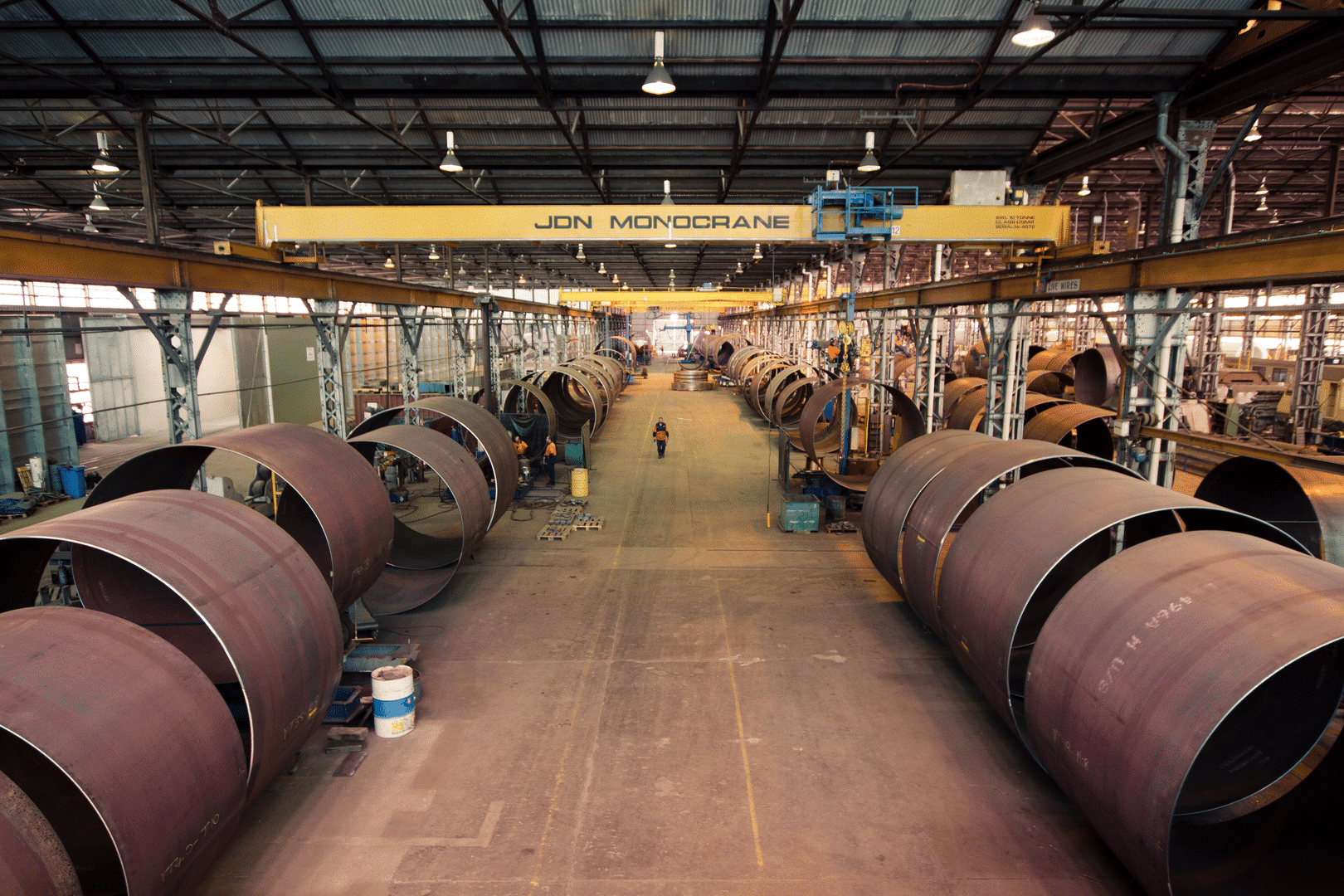The Baltic Power offshore wind farm, a joint project of the ORLEN Group and Northland Power, will be the first in the world to be built using low-emission steel produced almost exclusively from recycled material in metallurgical furnaces powered by renewable energy. The use of this material will reduce the carbon footprint throughout the turbine’s lifecycle by 10%. The Baltic Power farm will begin production in 2026 and will be able to power over 1.5 million households.
“The energy transition in Central Europe is gaining momentum, and the Baltic Power wind farm is its flagship. After its launch in 2026, an additional nearly 1.2 GW of power will be added to the Polish energy system, covering about 3% of the entire national demand for electricity. In the next few years, we will add another 5.2 GW, thanks to the construction of further wind farms on 5 new ORLEN Group concessions in the Baltic. In the context of these plans, partnerships with experienced, global players that give us access to innovative technologies which reduce carbon emissions associated with the construction of renewable energy sources are particularly important,” says Daniel Obajtek, President of the Management Board ORLEN.
Baltic Power will generate 4,000 GWh of zero-emission electricity annually, avoiding emissions of about 2.8 million tons of CO2 per year. An additional emissions reduction, already at the construction stage, will be possible thanks to the use of steel from sustainable production for the tower elements, on which the nacelles and blades will be installed. This material will be used to make the upper parts of 52 out of 76 Baltic Power towers. As pointed out by Vestas, the farm’s structural parts supplier, the ecological material will constitute 15% of all used steel. Almost all of this steel uses recycled material, melted in an electric furnace powered by wind energy. This will reduce the intensity of CO2 emissions by 66% per kilogram of steel compared to conventional steel. Produced by ArcelorMittal in the Belgian city of Charleroi, the steel has the same quality and technological parameters as materials produced by the traditional method.
“Baltic Power, as the first offshore wind farm in Polish Baltic waters, opens a new chapter in the Polish energy transition and raises the bar in terms of sustainable development. The mission of our industry is to build an emission-free future, which is why we are looking for innovative ways to implement this vision at every stage of the value chain. The technology for obtaining low-emission steel sets a new standard for the entire global offshore wind farm industry. It also confirms that we want to use resources in a sustainable way, further reducing the carbon footprint,” emphasizes Mike Crawley, President of the Management Board Northland Power.
The Baltic Power farm, with a capacity of almost 1.2 GW, will be located 23 km from the Baltic coast. Preparations for building the foundations on which the turbines over 230 meters high will stand will begin in 2024. In 2025, 76 Vestas wind turbines of 15 MW each will be installed on the farm. Work is already underway on the onshore power station, which will enable energy reception from the sea. Baltic Power has contracts with major contractors that secure the entire supply chain. Among the contractors are the most experienced suppliers from the offshore wind sector, including companies from Poland.
“Finding ways to reduce CO2 emissions, which arise during the extraction and processing of steel raw materials, is crucial for us and for the entire wind energy industry. Our cooperation with ArcelorMittal and the implementation of low-emission steel is an important step towards reducing the carbon footprint in the industry. Our customers also expect this change, which is why we are proud to be able to provide them with valuable solutions. The Baltic Power project is an excellent example of our technological progress, confirming that we can provide innovative and low-emission products to our customers,” summarizes Dieter Dehoorne, Vice President and Director of Global Purchasing at Vestas.
The total budget for the Baltic Power project is estimated at around 4.73 billion euros. The project is financed in the Project Finance formula, with credit agreements for a total amount of around 4.4 billion euros concluded with 25 Polish and international financial institutions. This is the largest funding secured for the implementation of a single investment in the history of Poland, and also one of the largest transactions of this type in the offshore wind area in Europe.
Offshore wind energy is one of the main directions of development of modern energy of the ORLEN Group. According to the Company’s strategy, by the end of this decade, the Group will reach 9 GW of installed capacity in renewable energy sources. The implementation of all offshore wind farm projects currently in the Group’s portfolio will provide it with about 6.4 GW of new, zero-emission production capacities and will contribute to achieving the company’s emission neutrality goal in 2050.
